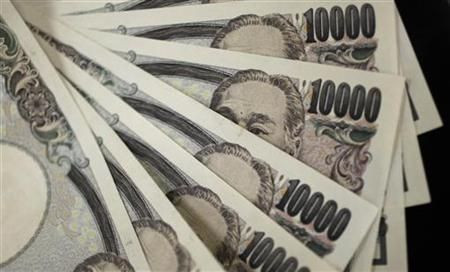Japan Decides on Further Monetary Easing: Report

The Bank of Japan’s decision to extend its support for lending to growth sectors rather than add to its Asset Purchase Program (APP) on Tuesday appears to have disappointed some but was the most likely outcome, according to a report by Capital Economics.
The Bank of Japan kept the overall ceiling for the APP at 65 trillion yen ($780 billion). Going by the report, it unveiled an extension of the fund-provisioning measure to support strengthening the foundations for economic growth which was as expected.
Capital Economics finds it odd that the failure to add to the APP is being seen as a disappointment. The Bank increased the APP three times in 2011 (in March, August and October) and a similar pattern of moves is expected every three to four months during 2012. Capital Economics says that the timing will be determined partly by the incoming data on economic activity and prices, but mainly, we suspect, by external developments such as the additional upward pressure that a renewed escalation of the crisis in the eurozone would put on the yen.
Capital Economics points out that the focus was on enhancing the fund-provisioning measure to support strengthening the foundations for economic growth, also described as the “Growth-Supporting Funding Facility.” This facility provides one-year loans which can be rolled over up to three times with the interest rate fixed at the bank’s key official interest rate at the time the loan is disbursed.
The bank also decided to extend the deadline for applications for new loans under the funds supplying operation to support financial institutions in disaster areas to April 30, 2013. These loans are also for one year at an interest rate of just 0.1 percent, but the terms are less favorable in aspects other than under the “Growth-Supporting Funding Facility.”
Julian Jessop and David Rea of Capital Economics have said that anything that reduces Japan’s dependency on imported energy is surely welcome andwould be an even greater priority after the shutdown of the nuclear industry following last year’s disaster. Nonetheless, there is little evidence that Japan’s economy has been held back by the lack of cheap finance.
Capital Economics has made the forecast that the Bank of Japan’s foray into industrial policy, however well-intentioned, is unlikely to do much to boost growth.
© Copyright IBTimes 2024. All rights reserved.




















